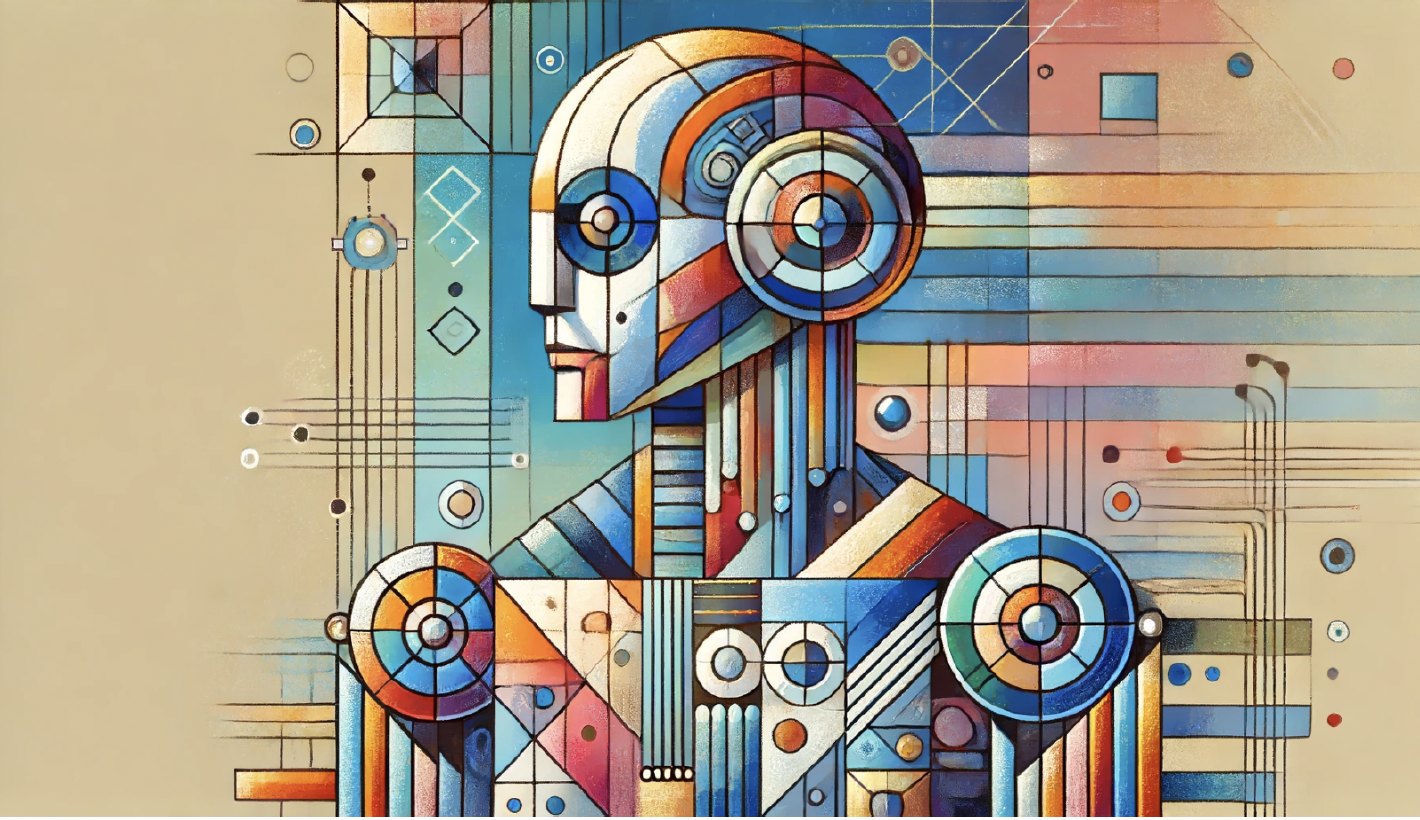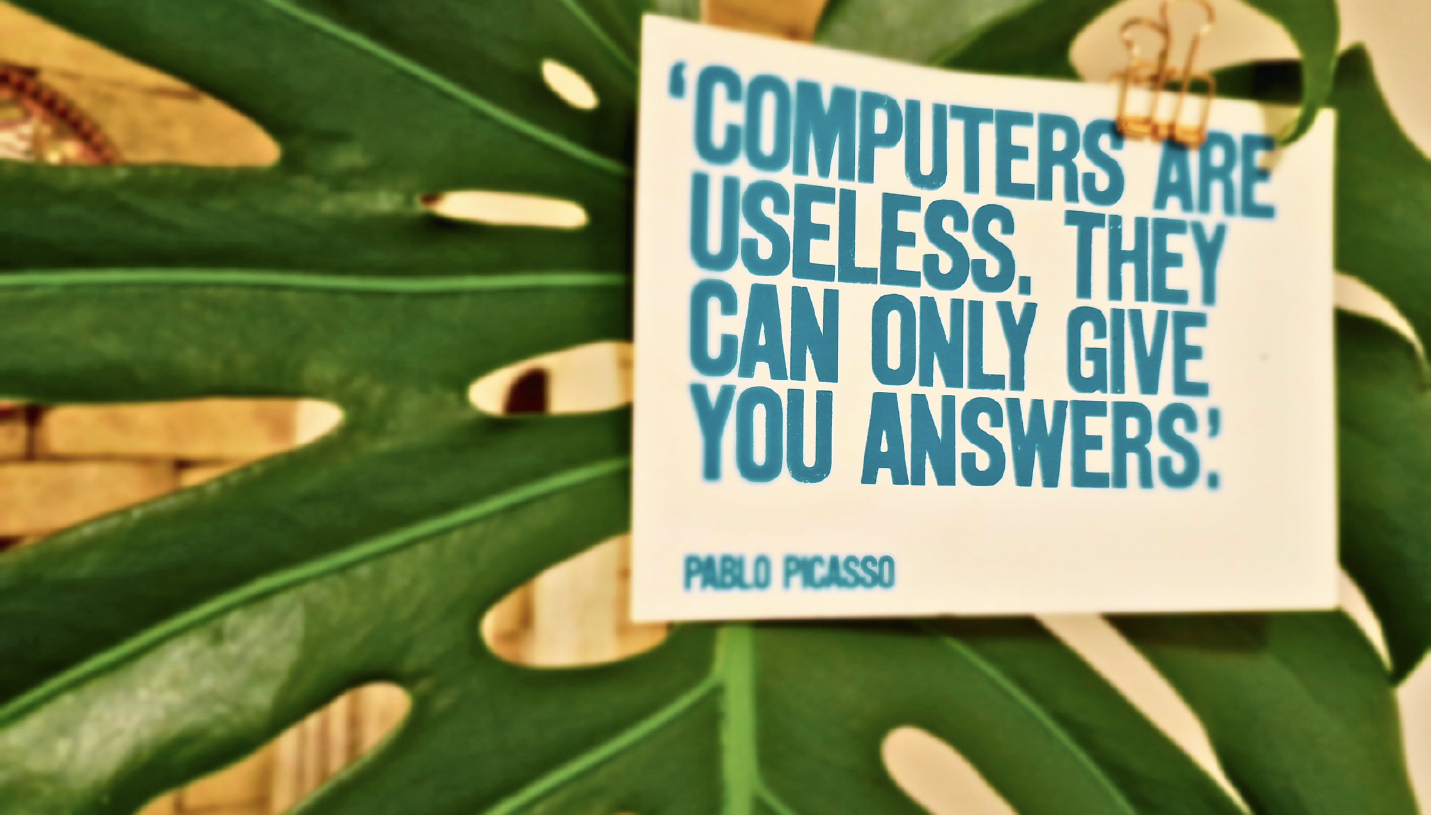- Home
- Resource Center
- Articles & Videos
- Lessons from Picasso: Embrace AI in your Localization Career Journey
5 August 2024
Lessons from Picasso: Embrace AI in your Localization Career Journey

AI-generated image
Much is being discussed in the Localization Industry about the seemingly infinite use cases for AI. However, it’s easy to notice how this transformative tool is mainly talked about from a business perspective: cutting costs, translating large volumes of content efficiently, and deploying them faster.
This promise of unlimited efficiency can definitely look scary to us, Localization Professionals, who handle many routine tasks like translating repetitive copy and initial proofreading. In 2017, Katja Grace, lead researcher at AI Impacts, conducted a study titled “When will AI exceed human performance? Evidence from AI experts”. It concluded that AI-driven automation could replace about 50% of translation-related tasks by 2024 due to advancements in AI's efficiency. They also predicted that, in 120 years, AI could automate all jobs.
Whether it's hype or not, we are at the center of the AI revolution. Our sector relies heavily on repetitive tasks that AI, particularly Large Language Models, can easily handle. This puts us at high risk for potential job redundancies.
And it can indeed happen, IF we keep doing what we are doing.
In conversations with people in our industry, there’s noticeable denial about AI's power - some turn a blind eye, while others passionately cling to the idea that there will always have to be a human in the loop.
From doing the things to being the ‘architect’ of the things
Even if AI’s advancement doesn’t reach its predicted potential, changes are inevitable. We, on the frontline of Localization processes, must reinvent ourselves for higher-value activities. From technical skills like AI system management, data analysis, and training MT models to nuanced capabilities like cultural adaptation and context-specific interpretations: The possibilities are endless. And we must be ready to adopt and pioneer them.
Now, more than ever, it’s time for Localization Professionals to adopt Continuous Learning as a value. Instead of ignoring or criticizing AI, let’s focus on its fantastic power of democratizing knowledge. AI can provide immediate access to vast databases of terminology, cultural context insights, and grammar and style checks - beyond that, AI can teach us almost anything.
Some people think using GenAI to enhance learning and productivity is “cheating”; some fear losing their humanity. Let’s take a step back to look at what ChatGPT, Claude, Co-Pilot, and others really are. These tools are nothing more than the aggregation of collective knowledge available on the web, generated by human beings.
Using these tools doesn't make us less human or ‘cheaters’. In fact, it allows us to focus on what makes us uniquely human: creativity, critical thinking, and emotional intelligence. By automating repetitive and mundane tasks, we can spend more time on activities that require a human touch, like building relationships, solving complex problems, and coming up with innovative ideas.
All we have to do is ask the right questions
I have this postcard from Barcelona’s Pablo Picasso Museum: it’s a white card with these words in bright blue: “Computers are useless, they can only give us answers.” This quote from the cubism master himself, perfectly fits how we should interact with AI tools to enhance ourselves.

Using AI to bypass the process of learning and understanding might get you somewhere in the short term, but without genuine effort, you won’t understand basic concepts, let alone complex ones.
If a student uses AI to write a book report and submits it as their own, what knowledge was gained? Imagine how seemingly small actions like these can affect one’s intellect in the long run. On the other hand, if a student reads the book, writes down their thoughts, and then discusses those ideas with ChatGPT, they can explore different interpretations and develop their own unique conclusions. This approach fosters deeper understanding and critical thinking, making learning a more enriching experience.
This is what Picasso’s quote is all about: While AI can provide answers, the real value lies in the questions we ask and the critical thinking we apply. By engaging with AI as a partner in learning rather than a shortcut, we can deepen our understanding, exercise strategic skills, and ultimately advance our professional development in this fast-developing industry.
Welcome AI as a localization best friend. So leverage it to automate tasks, improve quality, and gain cultural insights that let you invest your time in creativity and critical thinking. Let AI be your driving force to growth and development, at the same time maintaining a competitive and innovative edge in a transforming environment.

Aline Rocha
Experienced Localization Manager at Booking.com, currently leading LATAM localization teams. Proven expertise in i18n and g11n consultation, coupled with robust global project management. Skilled in leveraging data-driven decision-making to enhance operational efficiency and managing diverse teams. Passionate about ensuring cultural accuracy, fostering continuous learning, and driving innovation in the localization industry, particularly in multimedia content strategies.


